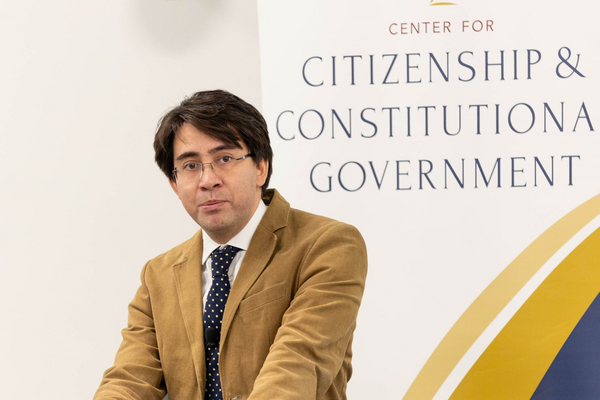
On Tuesday, Mar 19, 2024, Dr. Alexander Chula delivered a lecture titled "Lessons for the West from a Small African Country."
Chula, who is a Thai-British medical doctor and writer, studied Classics at Oxford then medicine at the University of London. In this lecture, Chula addressed his first book, Goodbye, Dr Banda, which reflects on his time spent in Malawi and the lessons he observed from its people and the legacy of Dr. Hastings Banda, post-independence Malawi’s complicated “founding father”.
Chula began his lecture by querying why anybody should care about Malawi. Indeed, it is just a small, impoverished, and landlocked country in southern Africa. However, Chula counters this by arguing that Malawi, which has experienced “the full gamut” of interactions with the West, from 19th-century missionaries to Madonna, provides an important lesson to Western society.
On contact with Europe in the 1860s, Malawi was a particularly impoverished area of Africa, ravaged by the Arab slave trade. Then, it became the British colony of Nyasaland, which effectively freed Malawi from much of the violence and the scourge of slaving. Although it remained very poor, Malawi entered into a period of relative peace under the British. Malawi gained independence in 1964 and the eccentric Dr. Hastings Banda became its first president.
Banda, who studied and worked in the United States and Britain before returning to Malawi, viewed the lack of classical education as perhaps the most urgent problem facing post-colonial Malawi. Thus, he founded the Kamuzu Academy, which soon became known as the “Eton of Africa.” Kamuzu, which cost Malawi 1/3 of its educational budget every year, gave full ride scholarships to the best-performing pupils of Malawi.
Although such a dedication and even obsession with the Western classics may seem odd, Chula explained that there was always a great desire in local Malawians to consume and create literature. “There's a widespread view that British colonialists foisted an alien culture on unwilling subjects,” Chula explained, and although sometimes that did happen, missionaries to Malawi discovered “an absolutely immense appetite for literacy among locals.”
Part of this desire for literacy and the classics stems from the deep-rooted respect that Malawian culture has for the past. In Malawi, Chula said, one's own ancestors are very much active in everyday life, both through traditions and natural events. Thus, the classics, which are the history and inheritance of the West, had a natural appeal in Malawi. According to Chula, this very respect for the past and for one’s own ancestry is the lesson that Malawi can now impart to the West.
This article was contributed by CCCG Writing Fellow Luca Fanucchi